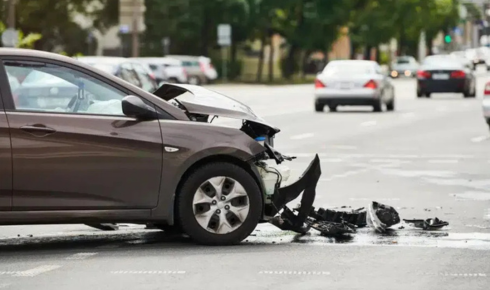Car accidents can happen in seconds, but the consequences often last months or even years. For Richmond residents, knowing Virginia’s car accident laws is essential for protecting your health, financial well-being, and legal rights after a crash. Because Virginia follows specific traffic and insurance rules, understanding how the law applies to you will help you make informed decisions after an accident. We recommend consulting an experienced auto accident attorney in Richmond if you have been involved in a car accident. The consultation should be free, and they can answer all your questions.
Virginia Is an At-Fault State
Unlike some states with “no-fault” insurance systems, Virginia follows a traditional at-fault system. This means that the driver who causes the accident is legally responsible for paying damages. Typically, this is handled through their auto insurance company. Suppose you are injured in an accident in Richmond. In that case, you may file a claim against the at-fault driver’s insurance policy, pursue compensation through your own insurance if you have specific coverage, or file a lawsuit in court.
Virginia’s Contributory Negligence Rule
One of the most important and unique aspects of Virginia law is the pure contributory negligence rule. Under this rule, if you are even one percent at fault for the accident, you cannot recover any compensation. This strict standard makes it crucial to gather substantial evidence to prove that the other driver was entirely at fault. Insurance companies often exploit this rule by arguing that the injured person contributed, however slightly, to the accident. Having legal representation is typically the most effective way to counter these tactics.
Insurance Requirements in Virginia
Virginia is unusual in that drivers may legally choose not to carry auto insurance if they pay a $500 uninsured motor vehicle fee to the DMV. However, most drivers do have insurance. The minimum coverage required includes $30,000 in bodily injury liability per person, $60,000 per accident, and $20,000 in property damage coverage. While these limits may cover minor accidents, they are often insufficient for serious crashes, meaning victims may need to pursue additional compensation through lawsuits.
Statute of Limitations
Virginia law sets strict deadlines for filing claims. For personal injury lawsuits, you have two years from the date of the accident to file. For property damage claims, the deadline is five years. Missing these deadlines almost always means losing the right to compensation. Richmond residents should keep this timeline in mind and seek legal advice early to preserve evidence and avoid delays.
The Importance of a Police Report
After an accident in Richmond, calling law enforcement is not only recommended, but it may also be legally required. If the accident involves injury, death, or property damage over $1,500, the police must be notified. The resulting accident report becomes an essential piece of evidence, containing details about the drivers, witnesses, road conditions, and the officer’s preliminary assessment of fault. Insurance companies and courts frequently rely on these reports when evaluating claims.
Steps to Take After a Car Accident in Richmond
After a crash, your first step should always be to check for injuries and call 911. Once you are safe, exchange information with the other driver, including contact details and insurance information. Document the scene with photographs and gather witness names if possible. Seeking medical treatment immediately is also critical, even if you feel fine. Injuries like whiplash or concussions may take hours or days to appear. Reporting the accident to your insurance company promptly is also required under most policies.
When to Contact an Attorney
Because of Virginia’s strict contributory negligence rule, having a lawyer can make or break your case. An attorney can gather evidence, work with accident reconstruction experts, and negotiate with insurers to prove the other driver was entirely at fault. If insurers deny your claim or offer a low settlement, your lawyer can file suit and fight for you in court.
Frequently Asked Questions
What if the other driver is uninsured? You may pursue compensation through your own uninsured motorist coverage if you purchased it.
Can I recover damages if I was partially at fault? No. Under contributory negligence, even one percent of fault bars recovery.
What damages can I claim? Medical expenses, lost wages, pain and suffering, and property damage may all be recoverable.
Do I need to report the accident to my insurance if I wasn’t at fault? Yes. Most policies require prompt reporting regardless of fault.
How long do I have to file my claim? Two years for personal injury claims and five years for property damage.
Conclusion For Richmond drivers, understanding Virginia’s unique car accident laws is essential. From the contributory negligence rule to strict filing deadlines, minor missteps can jeopardize your right to compensation. By seeking medical care, documenting the scene, and working with a skilled attorney, you can navigate Virginia’s legal system and protect your future after an accident.







Leave a Reply